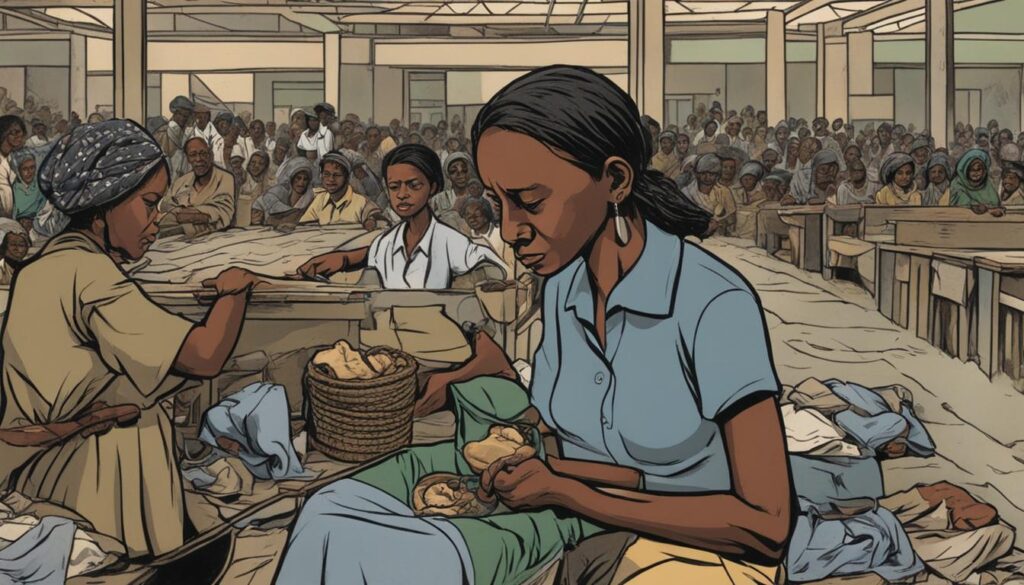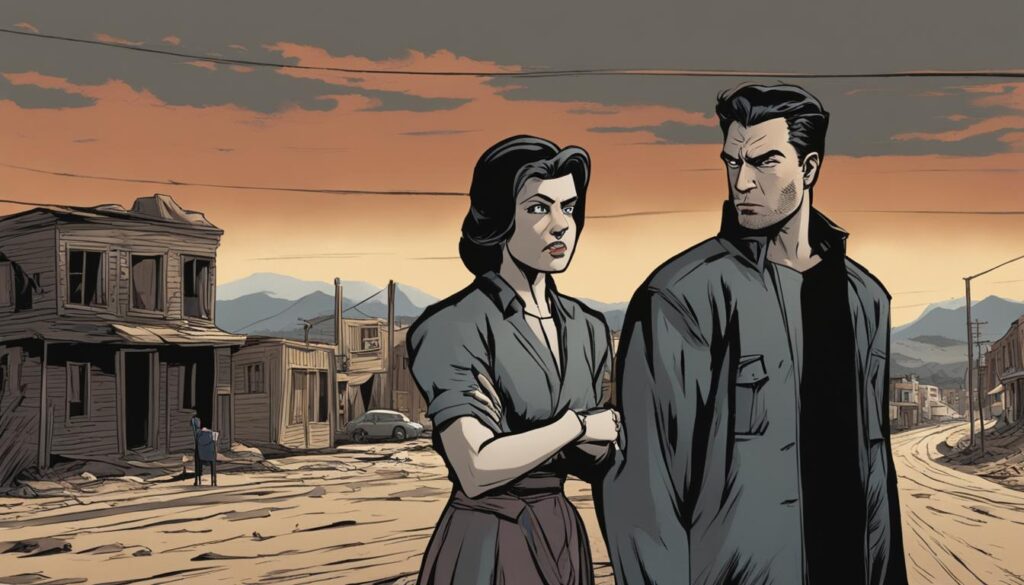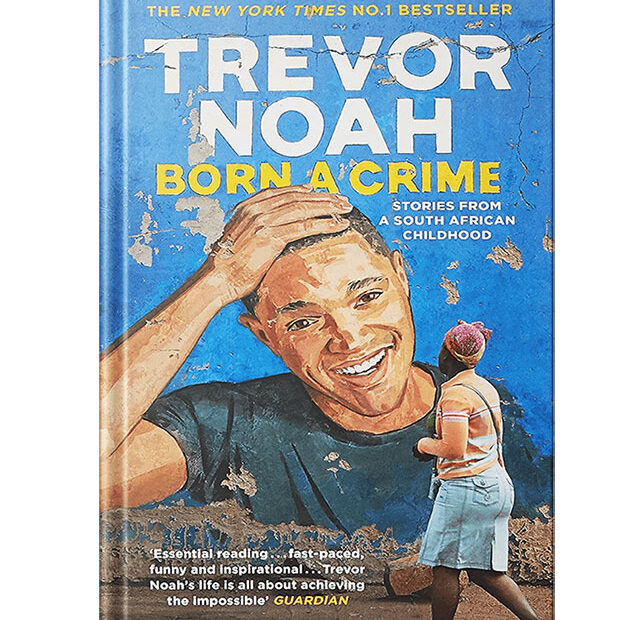As an avid fan of Trevor Noah, I couldn’t wait to dive into his memoir, ‘Born a Crime‘, and explore his life story. The book takes us on an emotional journey through Noah’s early years in post-apartheid South Africa, ending with a gripping final chapter that delivers a powerful resolution to the memoir. The intense conclusion left me with lingering thoughts and wanting more, so I decided to analyze the ending and share my insights with fellow readers.
In this article, we will unpack how the book ‘Born a Crime’ ends, providing a detailed synopsis of the final chapter and its various nuances, making sense of its conclusion and the larger implications of Trevor Noah’s story. So, let’s dive right in!
Key Takeaways
- Demystifying the conclusion of Trevor Noah’s ‘Born a Crime’
- Understanding the structure and non-linear storytelling utilized in the memoir
- Exploring Trevor Noah’s reflective narration and use of humor
- Unraveling the layers of apartheid’s impact on Noah’s life
- Dissecting the climactic encounter between Patricia Noah and Abel
- Discussing the larger implications of Trevor Noah’s conclusion
The Reflective Narration of Trevor Noah
In his memoir Born a Crime, Trevor Noah masterfully employs reflective narration through his adult perspective, providing both humor and insight into the challenges and absurdities of his upbringing during the apartheid. This self-awareness allows Noah to captivate readers as both the narrator and the observer of his life, addressing deep-rooted impacts on race relations and socio-cultural barriers in post-apartheid South Africa.
Using Hindsight for Humor and Insight
A unique feature of Trevor Noah’s storytelling is his ability to inject humor and insight into serious subjects. By weaving his adult perspective with vivid childhood memories, Noah creates an engaging, approachable narrative that sparks deeper reflection on critical societal issues, such as poverty, violence, and racial discrimination. The narration is filled with candid moments, punctuated by laughter, which further endear the reader to Noah’s experiences.
Portrayal of Patricia, Trevor’s Mother
One of the most poignant aspects of Born a Crime is the portrayal of Patricia Noah, Trevor Noah’s mother. Throughout the memoir, Noah depicts his mother with deep affection and admiration, emphasizing her unwavering determination and incredible resilience in the face of adversity. Through their shared experiences, the reader gains a deeper understanding of the bond between Trevor and Patricia, showcasing the power of family bonding and the immense influence she had on his life. This nuanced and deeply personal depiction contributes to a broader narrative on the enduring strength of family ties amidst treacherous circumstances.
Unraveling the Layers of Apartheid’s Impact
In Born a Crime, Trevor Noah provides a deeply personal and insightful look into the impact of apartheid on South African society. Through his storytelling, he highlights the many repercussions of this oppressive system that had a profound effect on the nation’s people, even years after its end.
One of the key aspects of the book involves documenting the harsh realities faced by individuals during the apartheid years. Through anecdotes and thought-provoking narratives, Noah paints a vivid picture of life under the apartheid regime. From the day-to-day hustle for survival to the perpetual fear instilled by the oppressive government, his memoir illuminates the emotional and social turmoil experienced by those living under apartheid.

Noah’s personal experiences of growing up as a mixed-race child in a society that actively sought to enforce segregation serve as a powerful testament to the systemic racial injustices perpetuated by the apartheid regime. His narrative highlights the many ways in which the laws dictated the lives of South Africans and continually reinforced a culture of inequality, hatred, and division.
Despite the heavy subject matter, Noah brilliantly injects humor and wit into his memoir to emphasize the resilience and strength of the people who endured life under apartheid. Through his own experiences, he demonstrates that even in the darkest times, human connection and love can endure.
The impact of apartheid on South African history cannot be overstated. Its effects continue to ripple through the years, influencing the nation’s fabric and coloring the experiences of subsequent generations. Noah’s memoir plays a crucial role in shining a light on these societal effects, raising awareness, and fostering understanding. By sharing his own journey, he underscores the importance of acknowledging the past while simultaneously forging a path for a brighter, more inclusive future.
Climactic Reveal: Patricia’s Encounter with Abel
In a sobering account, Born a Crime by Trevor Noah vividly depicts his mother’s harrowing experience with domestic abuse, culminating in Abel’s attempted murder of Patricia Noah. The shocking incident serves as a turning point in the memoir, bringing readers to the edge of their seats as they feel the tension and danger faced by Trevor’s family.

Patricia’s Brush with Death and Her Miraculous Recovery
The gravity of the violence escalates when Abel shoots Patricia, seriously injuring her. Despite the near-fatal incident, Patricia’s quick thinking and determination save her life. She manages to bring herself to a nearby hospital, setting into motion her astonishingly rapid recovery. The miraculous survival underscores Patricia’s strength, resilience, and will to live – traits that were vital in her journey of personal growth.
Noah’s Insights on Family, Violence, and Resilience
Through the ordeal of his mother being shot, Noah draws parallels with the broader implications of abuse, violence, and family dynamics. The encounter with Abel serves as an opportunity for him to reflect on his own life experiences, as well as those of his family and community. This raw, honest introspection sheds light on a narrative steeped in themes of violence, resilience, and the enduring power of family bonds.
In conclusion, the climactic reveal of Patricia’s encounter with Abel adds an intense, emotional layer to Born a Crime. It highlights the impact of abuse and violence on families, while simultaneously showcasing the resilience and personal growth that can emerge amid adversity. Trevor Noah’s reflections on these issues offer readers a deeply human and empathic perspective that resonates long after the book’s final pages.
Parsing Trevor Noah’s Conclusion and its Larger Implications
As Trevor Noah’s Born a Crime comes to a close, it becomes apparent that the memoir’s conclusion extends way beyond Trevor’s life story alone. Instead, the finale serves as a thought-provoking analysis of the broader social and cultural implications of the experiences recounted in the memoir. Trevor Noah’s conclusion effectively sparks a deeper understanding and empathy for the ongoing challenges faced by post-apartheid South Africa.
Throughout the memoir, Noah does an excellent job of balancing humor with personal reflection, all while providing an insightful commentary on various societal issues. His own life story, as both heartbreaking and inspiring as it may be, consistently parallels the story of his nation’s development and transformation. Thus, readers not only walk away with an understanding of Trevor’s own journey, but also a broader view of South African history and apartheid’s lasting effects.
Turning the final pages of Born a Crime, readers are left to ponder the powerful message embedded within Noah’s experiences: resilience is a necessity in times of adversity. Whether overcoming racial divisions, poverty, abuse, or broken family bonds, Trevor and his mother’s unyielding strength provide a lasting image of hope, even when faced with seemingly insurmountable challenges. This ultimate message of the memoir not only inspires readers but also serves as an important reminder that social issues and injustices have a profound impact on the lives of real individuals.
FAQ
How does the book ‘Born a Crime’ end?
The book concludes with the recounting of a harrowing incident where Trevor Noah’s stepfather, Abel, attempts to murder his mother, Patricia. The narrative explores the themes of family dynamics, violence, and resilience, ultimately reflecting on the broader societal implications of Trevor Noah’s life experiences in post-apartheid South Africa.
What is the significance of Trevor Noah’s mother, Patricia, in the memoir?
Patricia plays a crucial role in the memoir, as her character, values, and relationship with Trevor Noah are portrayed in-depth across the entire narrative. Her influence and bond with her son are significant in shaping Noah’s life, with the climax of the book focusing on her survival after being shot by her abusive husband, Abel.
What insights does Trevor Noah offer on apartheid throughout ‘Born a Crime’?
Trevor Noah provides an intimate, personal perspective on living under apartheid in South Africa. He educates the reader on the historical context and intricacies of the apartheid regime, the sociopolitical divisions it created, and the enduring impact it has had on the country and its people, even after apartheid’s official end.
How does Noah’s narrative style contribute to the memoir’s impact?
Noah adopts a reflective narration style, using hindsight, humor, and insight to recount his younger years. This approach allows him to comment on the absurdities and injustices in his life as both a narrator and observer. His self-awareness and wit further endear readers to his story as he unpacks the complexities of growing up in post-apartheid South Africa.
What larger implications does Trevor Noah’s conclusion highlight?
The conclusion of ‘Born a Crime’ not only signifies the end of Noah’s personal memories, but also touches on the broader social and cultural implications of his life experiences. The memoir offers valuable insights into the challenges faced by individuals and communities in post-apartheid South Africa, making it a thought-provoking and impactful read.
